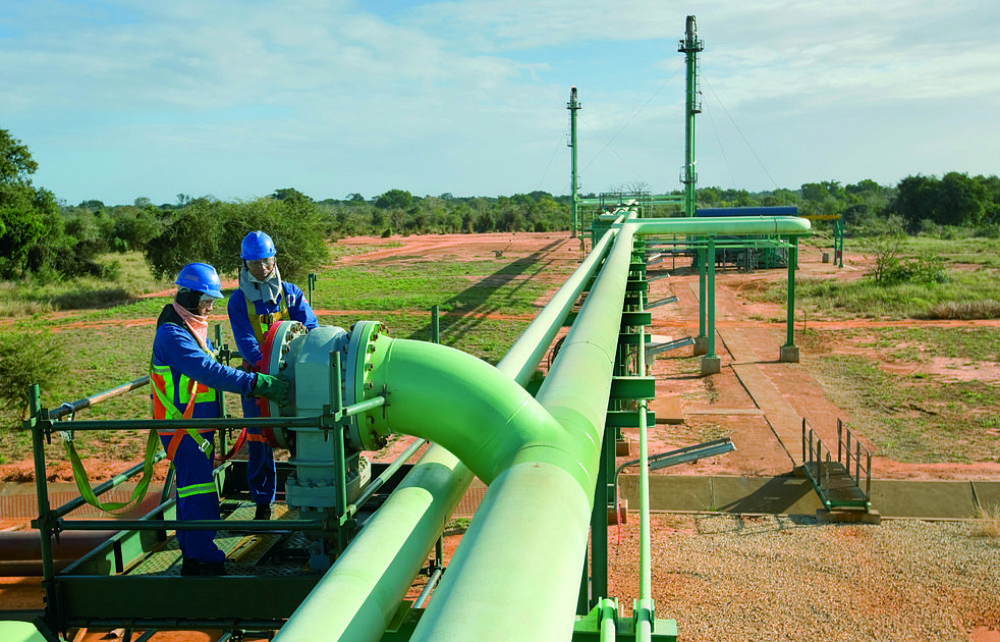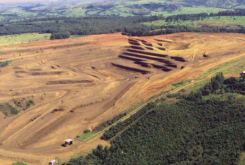Mozambique´s new Temane gas plant, part of a USD 760 million project with multinational Sasol, will support the country´s role as a ‘regional energy hub’, according to the Economist Intelligence Unit (EIU).
As the country looks to develop massive natural gas reserves in the northern Cabo Delgado province, the Mozambican prime minister, Carlos Agostinho do Rosário, announced last month that construction work on a thermal power plant in Temane, in the province of Inhambane in southern Mozambique, will start in the second half of 2021.
Once operational, the Temane power plant will have a capacity of 420 MW and will run on natural gas.
In February the Mozambican government and Sasol, announced an investment of USD 760m in the Temane Natural Gas Project, with the development phase for the fields expected to start in July. Gas from the project will feed into the new Temane power station.
“Developing Mozambique’s nascent gas sector is expected to stimulate long-term, sustainable economic growth”, the EIU says in its most recent report on Mozambique.
“The new plant is a core part of Mozambique’s ongoing strategy to strengthen domestic infrastructure and position itself as a regional energy hub”, it adds.
USD 760 million Mozambique Gas Project to provide Additional Supply to South Africa
In September 2020 the US Development Finance Corporation (DFC) announced a USD 200m loan for the construction of the plant and a 25-km transmission line in Inhambane province, and in 2019 Mozambican government signed financing agreements for USD 530m to build a 563-km line that will connect the new Temane power plant to Maputo, the capital.
The government is also developing transmission infrastructure to connect Inhambane province to other regions across the country, with new lines scheduled, alongside connections to neighbouring countries.
Currently, just over 2m households are connected to the national electricity grid. The government aims to double the number of households connected to the national electricity grid via the new Temane plant, benefiting an estimated 10m people by 2024.
In 2020 the government began its “Energy for All” campaign, seeking to ensure universal access to electricity by 2030, which, according to the EIU, “is unlikely to be met, owing to the scale of the challenge and still-limited financing available to the government”.
Insurgency in North of Mozambique Starts to Hit Gas Industry and Growth Forecasts
The EIU expects “Mozambique’s gas sector to continue to attract major commercial interest, boosting domestic industries such as power generation”.
Mozambique’s economy is currently driven by coal and aluminium, but liquefied natural gas (LNG) projects are under development, with a small field set to begin production in 2022 and a larger one commencing from 2024 (with major investment inflows expected).
An Islamist insurgency in the northern Cabo Delgado province, where onshore LNG projects are being developed, has been met with ‘weak government response’, but external support ‘will secure the development of the sector’, the EIU adds.
“From 2022, once the fallout from the pandemic has abated, government policy will focus on developing the LNG sector and supporting broader economic growth (through development of auxiliary industries and management of a sovereign wealth fund)”, the report says.
After contracting in 2020, real GDP will pick up in 2021-22 as the coal industry rebounds. Real GDP growth will quicken from 2023 as the gas industry develops, but some downstream projects have been delayed, ‘dampening the spillover effects’, according to the EIU.




